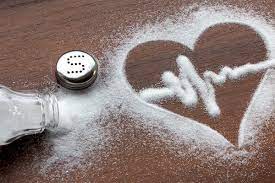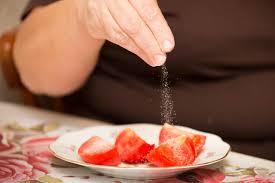
Salt and Hypertension: Gender-Based Impact on Blood Pressure
Exploring the intricate relationship between salt intake and hypertension unveils intriguing revelations, particularly in how this connection manifests differently in men and women. Hypertension, or high blood pressure, stands as a widespread health concern affecting millions globally, with salt consumption being a pivotal factor. Recent research sheds light on the distinct impact salt has on blood pressure, emphasizing gender disparities. In this discussion, we delve into the findings, implications, and potential shifts in health guidelines, redefining our understanding of the salt-hypertension dynamic for both men and women.

Hypertension, or high blood pressure, is a common medical condition that affects millions of people worldwide. It is a leading cause of heart disease, stroke, and kidney failure. While there are several factors that contribute to hypertension, such as genetics, age, and lifestyle habits, recent research suggests that salt intake may affect men and women differently.
Overview of The Salt Study
A study published in the American Journal of Hypertension found that men who consumed a high-sodium diet had a greater increase in blood pressure compared to women who consumed the same amount of salt. The study involved 2,124 participants, both men and women, who were followed for an average of 3.7 years. The researchers measured the participants’ blood pressure and salt intake through urine samples.
The study found that men who consumed more than 13.7 grams of salt per day had a 21% higher risk of developing hypertension compared to men who consumed less than 9.6 grams per day. In contrast, women who consumed more than 13.7 grams of salt per day had only a 6% higher risk of developing hypertension compared to women who consumed less than 9.6 grams per day.
These findings have important implications for public health policies and guidelines. Currently, the World Health Organization recommends that adults consume less than 5 grams of sodium per day, which is equivalent to about one teaspoon. However, this recommendation is based on the assumption that both men and women are affected equally by sodium intake. The new study suggests that men may need to be more cautious about their dietary intake than women.
In conclusion, hypertension is a serious medical condition that affects millions of people worldwide. While there are several factors that contribute to hypertension, recent research suggests that sodium intake may affect men and women differently. The study found that men who consumed a high-sodium diet had a greater increase in blood pressure compared to women who consumed the same amount of salt. These findings have important implications for public health policies and guidelines and may require a re-evaluation of current recommendations for salt-intake.
Disclaimer: The information provided in this content is for general informational purposes only. It is not intended as medical or healthcare advice, diagnosis, or treatment. Always seek the advice of a qualified healthcare professional with any questions you may have regarding a medical condition or healthcare decisions.

